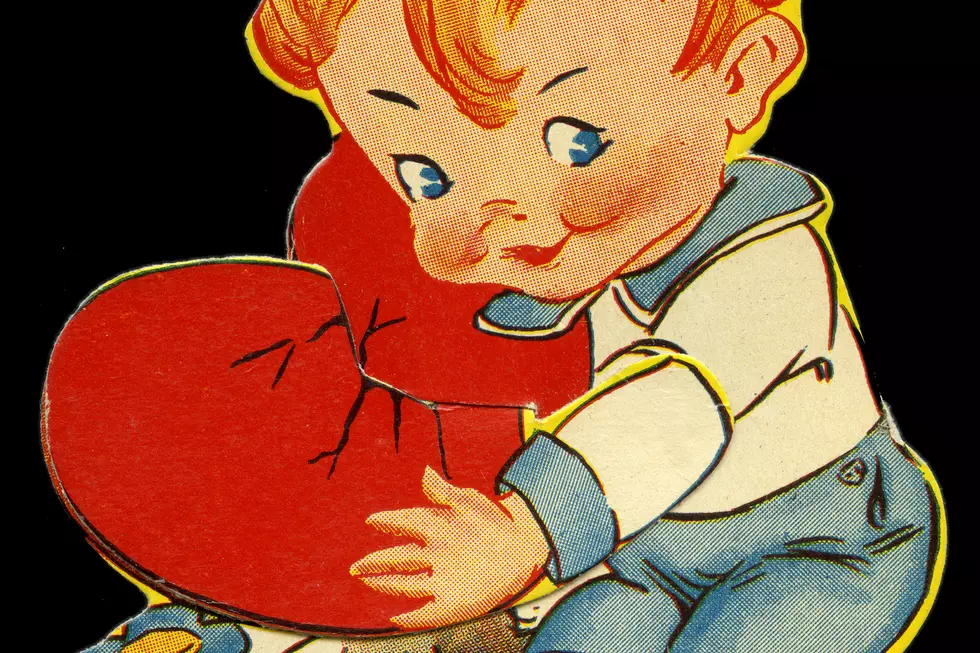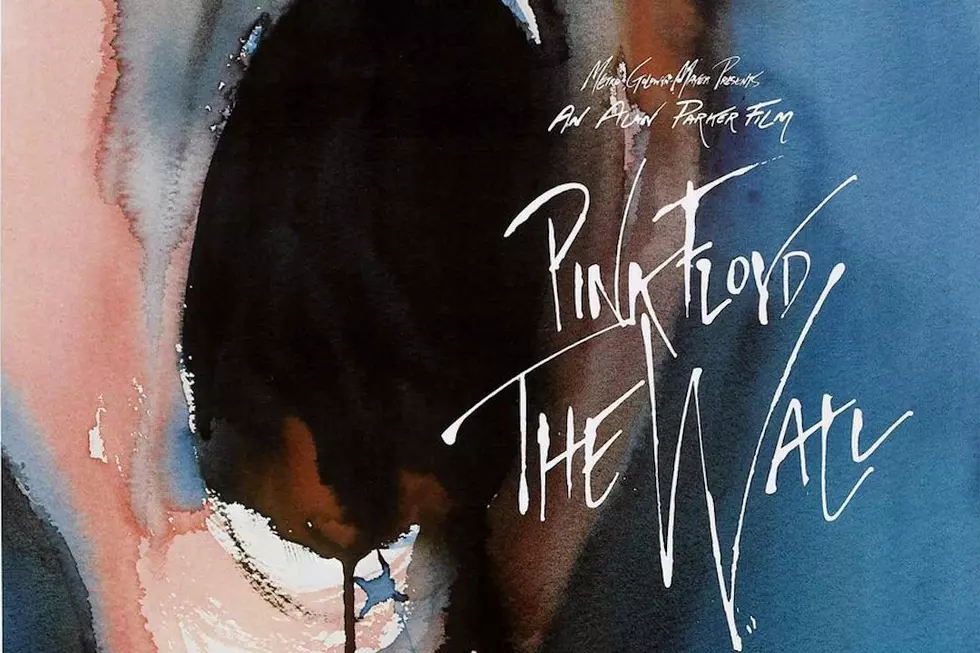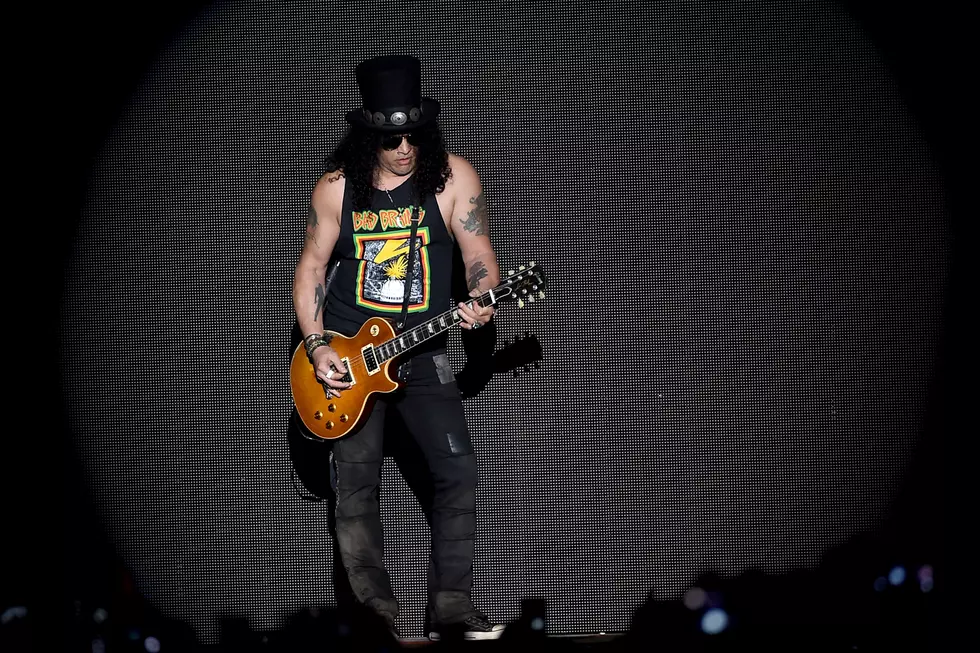
14 Secretly Cruel Soft Rock Love Songs
Is there any more gentle genre of music than soft rock?
The guitars were acoustic, their harmonies were pop and all breezes were summery. Soft rock is as inoffensive as it gets, all the better to maximize its appeal to a mainstream audience.
But while the sound is placid and lyrics full of sunshine and love, let’s not forget the era it came from. This was a decade of one-night stands, fresh divorcees back out on the town and plenty of drinking and drugs. So of course people wrote what they knew.
A lot of songwriters managed to bury some darker storylines in their soft rock songs, keeping them just under the surface to not jeopardize that sweet, sweet AM radio airplay. Here are 14 Secretly Cruel Soft Rock Love Songs whose happy pop sides are only what a fool believes.
Bee Gees, “Nights on Broadway”
Considered by many one of the Bee Gees’ best, “Nights on Broadway” features sparkling Gibb harmonies, a fine chugging ’70s groove and the POV of a determined stalker. The jilted lover here is waiting in line to see his ex after her Broadway performance, where he’s followed her even though she specifically did not want him to. We don’t know the result of their meeting, but this one doesn’t matter since he’s prepared to wait a whole lifetime anyway. A similar story was handled more deftly and less creepily in Thomas Dolby’s “Europa and the Pirate Twins.”
Raydio, “You Can’t Change That”
And here comes Ray Parker Jr. to make the Gibbs look measured. “You Can’t Change That” starts out as a solid and reasonable declaration of love. As the song continues, he reminds the object of his affection that she can try changing her telephone number and address, but she’s not going to get away from him that easily. Following that, the lines about changing the color of her hair and the clothes she wear seem less like a declaration of loving the person inside and more like tracking down someone in Witness Protection.
Captain & Tennille, “Love Will Keep Us Together”
Perhaps the worst offender of the happy pop bait-and-switch, the bubbly “Love” was the No. 1 song for all of 1975. Can anyone resist an ode to lifelong soulmates? Everyone knows the couplet “Love will keep us together/Think of me, babe, whenever,” which is a great place to stop -- stop! -- because the rest of the song is Tennille instructing Captain on how to turn down groupies “whenever” they come on to him. In case he’s not convinced, she reminds him he’ll soon be old and ugly and never get anyone else anyway.
Benny Mardones, “Into the Night”
Lots of songs from this era mention teenage girls, which is fine from the perspective of a teenage boy or an older man nostalgic for lost youth. “Into the Night” doesn’t even try pretend it’s that; its first line is the protagonist’s buddies straight-out telling him to keep away from the 16-year-old jailbait. But come on, man, implores Benny, those lawmakers responsible for protecting our children are a bunch of “fools who don’t know what love is yet.” This song is notable for two separate Top 20 chart runs, in 1980 and 1989, with Mardones 41 years old during the second one.
Harry Chapin, “Cat’s in the Cradle”
Everyone knows this story-song about a man who’s never around during his son’s childhood, and then, in an ostensibly poignant “the call’s coming from inside the house!” twist, the son ignores his dad because he’s grown up just like him. Except upon closer examination, he really didn’t. The son doesn’t have time to see his dad on command because, unlike you, Dad, he’s actually taking care of his own kids, who are sick. The dad is so unfamiliar with this concept that he hijacks the last verse to make it all about him anyway.
Todd Rundgren, “Hello, It’s Me”
This tune is a symbol of sensitivity, to the point that it serves as the soundtrack of a pivotal scene in The Virgin Suicides where the neighborhood boys and doomed sisters play record snippets for each other over the phone. (Speaking directly might have scared one of the Virgins off, like baby deer.) Most of the lyrics here are pretty thoughtful, until Todd Rundgren casually tosses off the real reason he’s calling: to “spend the night if you think I should.” I mean, if not, no biggie but he just thought he’d throw it out there -- making it about as sensitive as a 2AM text reading “hey.”
Dr. Hook, “A Little Bit More”
Dr. Hook & the Medicine Show had hits like “Cover of the Rolling Stone” and “Sylvia’s Mother,” the latter being sincerely romantic even if it's schmaltzy. The Medicine Show must have kept things under control, because once they shortened their name to “Dr. Hook,” their true creeper-pop selves emerged. The worst is “A Little Bit More,” which almost hit the Top 10 in 1976 and has the now-jarring chorus “When your body’s had enough of me/And you’re laying flat out on the floor/When you think I’ve loved you all I can/I’m going to love you a little bit more.” A close second is 1980’s self-explanatory “Girls Can Get It.”
Eric Clapton, “Wonderful Tonight”
"Wonderful Tonight" is one of several songs Eric Clapton wrote for his then-wife Pattie Boyd, and on first listen, this seems pretty admiring, and the tale is straightforward: man goes to a party with his wife, and she’s so gorgeous everyone stares at her and everything is wonderful. And then he gets too drunk and his wife helps him to bed, and it’s still wonderful because ... actually, it’s not. Clapton had a serious drinking problem and was often violent to Boyd during his binges. Just because he called his then-enabler something nice before he passed out doesn’t make it the capper on a whimsical story.
Barry Manilow, “Looks Like We Made It”
The chorus sounds so positive and celebratory, like a couple finishing a marathon and bursting through the finish line hand in hand. But the jubilant “we made it!” isn’t directed to his current partner, but instead toward a former lover he's finally no longer pining over, even though he’s been doing so behind his current flame’s back. Congratulations on your achievement! It took a whopping one glimpse of his ex for him to realize they failed (or at least he did) at making it anyway, so all the theatrics were premature.
Gilbert O’Sullivan, “Alone Again (Naturally)”
All right, this one’s already pretty morose. O’Sullivan is sad because his fiancee left him at the altar, sad his parents died, sad he’s alone. But this has to be the hugest American hit (it's ranked the No. 5 song of the entire decade) that takes place while the protagonist is actively planning his upcoming suicide. He makes the protagonist of Gram Parsons’ “$1000 Wedding” seem downright joyous.
Rupert Holmes, “Escape (The Pina Colada Song)”
This one shouldn’t have aged so poorly, since everyone now meets their partners in a personal ad-ish way online (its central situation is even more possible than in the ’70s). The biggest, most obvious problem is the nonchalant way they both laugh off their mutual cheating. But almost as bad is how their dating qualifications are a rum hangover of ’70s-sitcom cliches. You like to do yoga? You’re out, hippie. You eat health food? Ew, gross, you’re out too. But “if you like making love at midnight in the dunes of the cape,” which is totally a thing you’ve done a bunch of times and have an overriding fondness for, then see you at O’Malley’s.
Gladys Knight & the Pips, “Midnight Train to Georgia”
Yeah, it’s sweet, she’s following him to his hometown because she loves him, right? If he weren’t such a wimp who couldn’t hack it in Los Angeles, maybe. But the wannabe-star boyfriend is crawling home with his tail between his legs, with no thought to her or her own entertainment-industry career, which apparently was doing a lot better since this song was a No. 1 hit. The line toward the end about “now I’m his alone” may explain some of her real motivations for spiriting him out of town.
Dave Loggins, “Please Come to Boston”
Another separated-lover song, but this time the woman’s not getting off the couch to go anywhere. She’s stalwartly in Tennessee while her lover provides appealing scenarios in other cities: She can sell her art on the street, he’ll yell how much he loves her into the canyon, they can look at the stars together. She turns him down not for any practical reason or because she’s got better things going on, but by commanding “that ain’t your kind of town because I say so.” Notice he never goes back to her. Maybe she can meet up with the guy from Georgia; it’s a lot closer and he’s already a wuss.
Chicago, “Saturday in the Park”
This doesn’t have an obvious dark underside, but come on, he remembers every single thing about that afternoon, yet he only “thinks” it was the 4th of July?
The Best Love Song From More Than 100 Rock Acts
Gallery Credit: UCR Staff
The Complicated History of the Eagles’ ‘Victim of Love’
More From Sasquatch 92.1 FM










